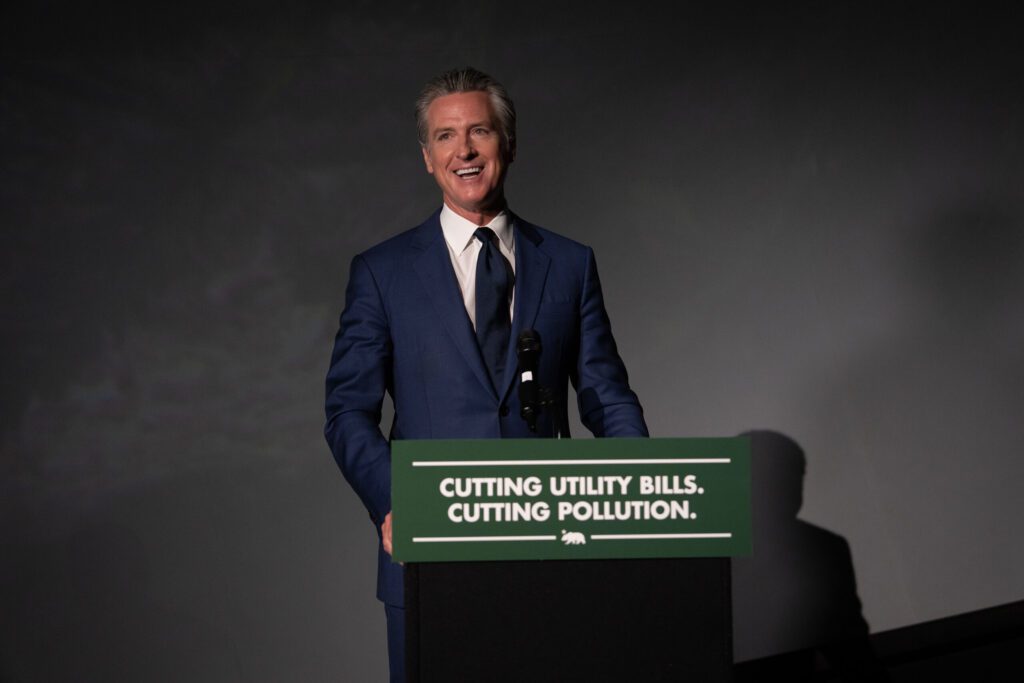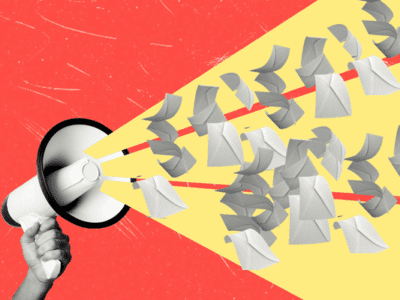Signing AB 1167 Would be a Win for Energy Affordability
A bill that seeks to protect ratepayers from subsidizing utility lobbying still awaits Governor Newsom’s signature.

The 2025 legislative session has been a banner year for energy affordability legislation in California. The legislature passed—and the governor signed—a suite of six major bills that the governor and legislative leaders have championed in an effort to bring down energy costs for Californians. However, the job is not yet done. Governor Newsom has not yet signed a key bill—AB 1167— that will be vital to keeping costs down for utility ratepayers by ensuring they are not forced to subsidize utilities’ political lobbying and promotional advertising.
Governor Newsom himself issued an Executive Order in advance of this legislative session instructing agencies to examine all feasible pathways to reduce costs to ratepayers, but he is running out of time to sign this common-sense measure. Newsom must sign the bill by October 12 in order for its consumer protections to go into effect. He should sign AB 1167 to help lower electricity costs while also holding big utilities accountable.
AB 1167 would institute protections at the California Public Utilities Commission (CPUC) to ensure that utilities are not improperly spending ratepayer money on political lobbying or promotional advertising. With California’s electricity rates outpacing inflation and price increases in other states, the last thing customers should be paying for is utility companies lobbying against their own interests.
California utilities are already theoretically prohibited from spending ratepayer money on political advocacy, but without clear enforcement mechanisms, some utilities have repeatedly tried to skirt the law and have only refunded the ratepayer money they’ve spent when caught. As a recent Earthjustice blog post about AB 1167 put it, “If you rob a bank, and the only consequence for getting caught is returning the money you tried to steal, you are incentivized to keep robbing banks.”
SoCalGas is a particularly egregious offender, with investigations from the Sacramento Bee newspaper and the CPUC’s Public Advocates Office finding that the utility has spent tens of millions of ratepayer dollars on repeated political lobbying to undermine climate policy since 2019. Beginning in 2020, SoCalGas refused to allow the Public Advocates Office to examine their accounting data, requiring the Public Advocates Office to obtain a subpoena to access records that should have already been made available to the CPUC to ensure responsible spending of ratepayer funds. Moreover, the records that were disclosed often left out key information (such as how much time utility employees spent on lobbying) making it impossible to determine the full extent of the underreporting of political spending with ratepayer money.
(Other utilities have also come under scrutiny for improper spending of ratepayer funds. For example, another Sacramento Bee investigation discovered that PG&E has spent up to $6 million dollars of ratepayer money on public relations advertisements since 2022 promoting the utility’s brand, improperly labeling the ads as “safety communications.”)
AB 1167 has been developed over the past couple of legislative sessions, in response to this evidence of utilities repeatedly evading the existing rules that are intended to prevent improper spending of ratepayer money. The bill puts actual teeth and enforcement mechanisms behind the existing rules: it requires clearer accounting from the utilities; affirmatively requires utilities to disclose the source of funding (whether ratepayer or shareholder) for public ads; and imposes penalties for violating the rules.
AB 1167 would put California in good company—making us the seventh state in recent years to enact a law limiting utility spending of ratepayer money on lobbying and other corporate costs.
As ratepayer-funded entities with a government-guaranteed rate of return, utilities have a responsibility to steward ratepayer funds fairly, and only use those funds in service of goals that benefit ratepayers. Activities designed to increase shareholder profits—political advocacy and commercial advertising—should be paid for with shareholder funds. AB 1167 is vital tool to ensure utility accountability and reduce costs for ratepayers. The governor should follow his own order to his agencies to identify programs “whose funding might more appropriately come from a source other than ratepayers” and should sign AB 1167 into law.
Reader Comments
One Reply to “Signing AB 1167 Would be a Win for Energy Affordability ”
Comments are closed.







“Newsom must sign the bill by October 12 in order for its consumer protections to go into effect.”
Technically in California if the governor doesn’t sign a bill, it goes into effect!